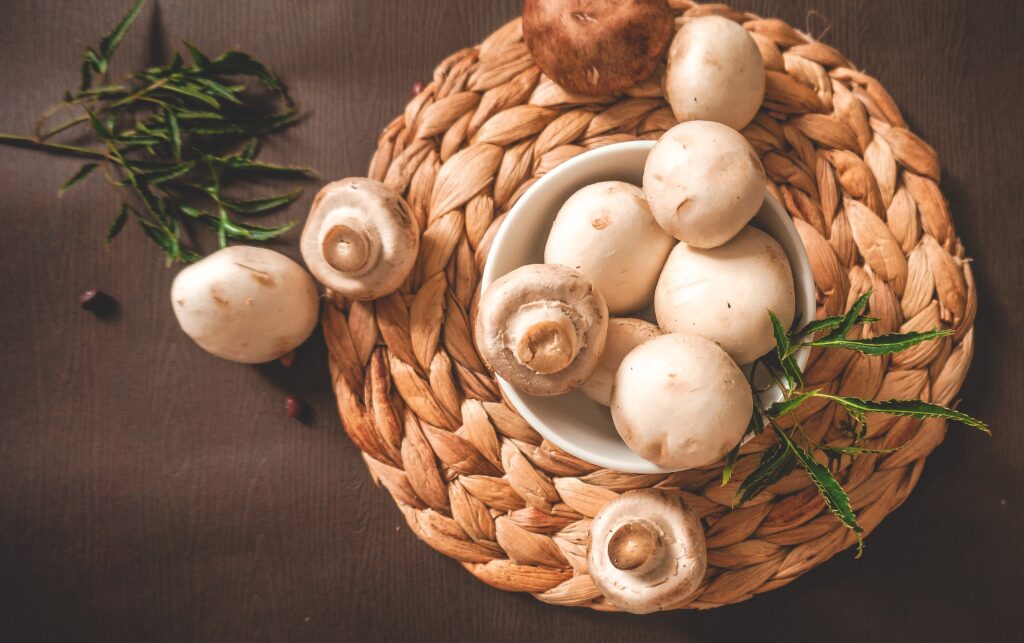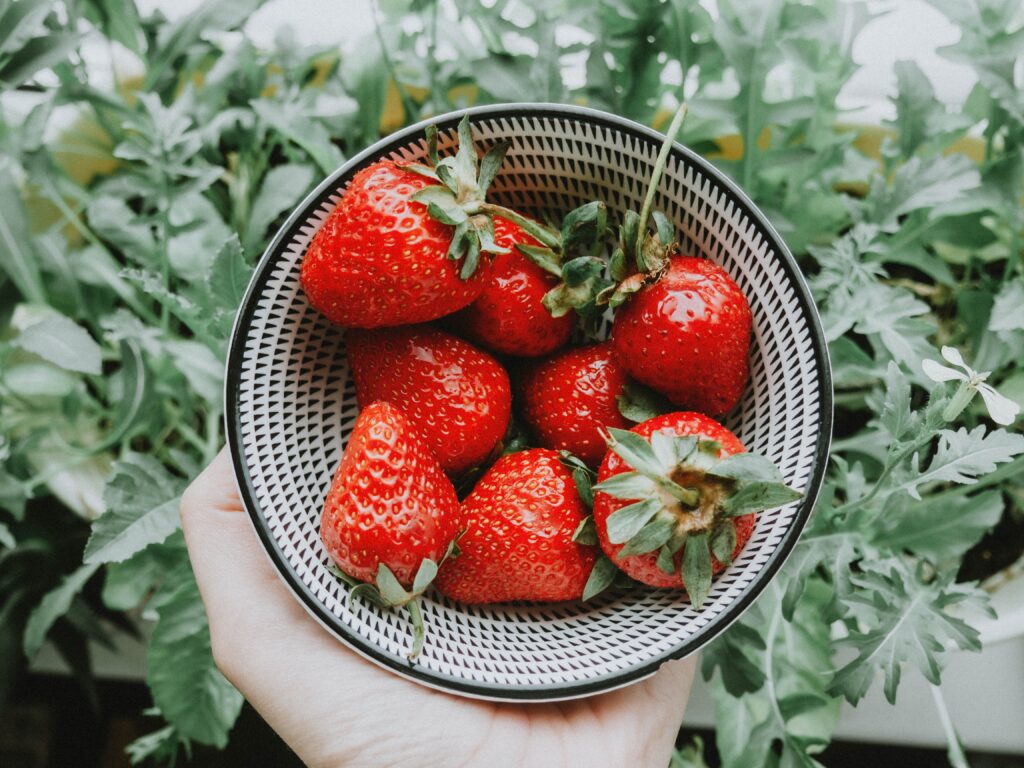
Prebiotics are just a fancy name for certain types of fiber that our gut microbes love to eat. The technical term for the way our microbes process these fibers is called fermentation.
Note that prebiotics are not the same as probiotics, which refer to the live microorganisms that we ingest either via supplements or fermented foods such as miso, sauerkraut, kimchi, or yogurt.
Our gut microbes ferment prebiotics and create compounds that benefit our gut and overall health. These compounds encourage a healthy gut lining, balance our immune response, and lower inflammation. Basically, our gut microbes treat us well when we feed them well.
Examples of prebiotics are:
- Onions
- Garlic
- Leeks
- Shallots
- Mushrooms
- Beans and legumes
- Some nuts (cashews and pistachios)
- Honey
- Flax
- Chicory roots
- Oats
- Jerusalem artichoke
- Sweet potatoes
- Asparagus
- Peaches and nectarines
- Apples
- Watermelon
- Bananas (especially green and barely ripe)
A diet rich in prebiotics can encourage growth of beneficial microbes in our colon, but for certain conditions such as IBS, prebiotics may worsen symptoms. The low-FODMAP diet is often used for people with IBS because it excludes many of these prebiotic fibers. However, it is not meant to be followed long-term (and should be done under guidance), because eventually it can lead to less diversity in the gut microbiome. Remember, one of the key determinants for gut health is how diverse our microbiome is.
If someone finds that prebiotics are actually flaring their gut issues, it’s important to keep in mind that the food itself is NOT the problem! It’s simply revealing a deeper issue. IBS and negative responses to prebiotics indicate an imbalance in the gut microbiome that can be corrected.
If you’re reacting to prebiotics with constipation, bloating, gas, or diarrhea, it’s important to start digging, find what is “off” in the gut, and rebalance it. This is what I work with many of my 1:1 clients on! Once the imbalance is corrected, prebiotics should ideally be better tolerated.
Prebiotic fibers are not the only things with prebiotic activity!
Recently, research has shown that certain fibers are not the only things with prebiotic activity. Polyphenols, which are found in many brightly colored plant foods, appear to have similar benefits. Like prebiotic fibers, polyphenols can promote “good” bacterial species and the healthful compounds they create.
Thus far, the most studied polyphenols for gut health are:
- Berries and cherries
- Pomegranate
- Green tea
- Dark chocolate and cocoa
- Grapes
- Apples
- Red cabbage
In summary, certain fibers as well as polyphenols act as prebiotics and feed our gut bacteria. Including more of these foods can be one more strategy to continue improving gut health.

